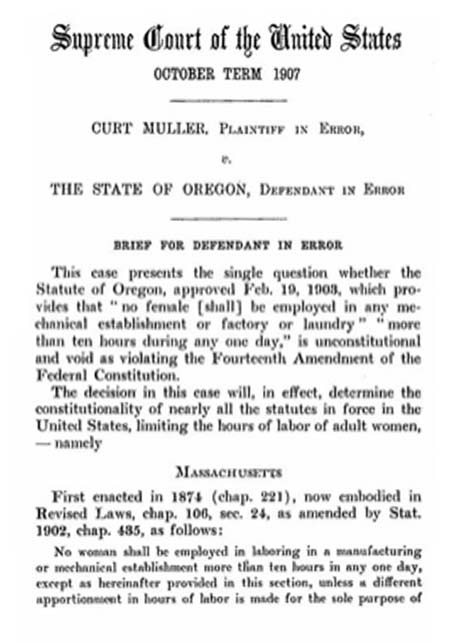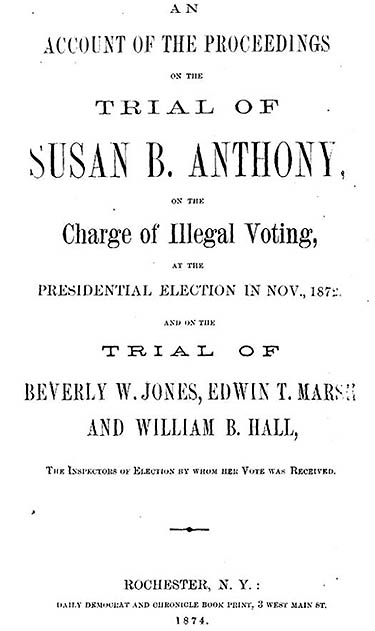Suffrage is a common right of citizenship. Women have the right of suffrage. Logically it cannot be escaped.
Victoria Woodhull
This cartoon, from The Daily Graphic, shows a man-like Susan B. Anthony, Library of Congress.
The Legal Case of Minor v. Happersett
In addition to seeking a new suffrage amendment or winning the vote state by state, suffragists turned to the courts. Suffragists argued that the Fourteenth Amendment had already granted women the right to vote. The amendment guaranteed the protection of the rights of citizens, and suffragists argued that voting was a right of citizens.
In 1872, members of the National Woman Suffrage Association from all over the United States decided to register to vote. Susan B. Anthony successfully registered and voted in New York. She was later arrested, went on trial, and was fined $100. In court, Anthony responded to the sentence: “the only chance women have for justice in this country is to violate the law, as I have done, and as I shall continue to do.” She never paid the fine. Opponents of suffrage mocked Anthony in the press, and printed pictures that depicted her as a masculine-looking woman.
Although Anthony’s trial was widely publicized, the case of Virginia Minor of Missouri was more important. Minor was not allowed to register to vote, so she brought a case against the registrar, Reese Happersett. In 1875, Minor v. Happersett went to the Supreme Court of the United States. The Court decided that suffrage was not a right of citizenship. The Fourteenth Amendment, therefore, did not give women the right to vote. Suffragists would have to develop other strategies to change state and national laws.
By Allison Lange, Ph.D.
Fall 2015
Essential Questions
- What were the facts of the case?
- What did the case decide?
- Who were the opponents?
- What was the argument?



